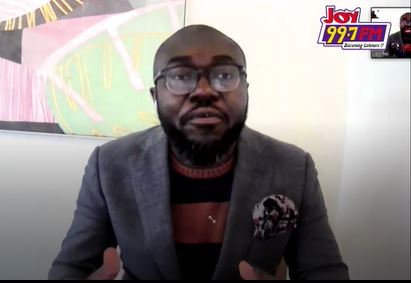A researcher at the University of Cambridge has bemoaned the lack of an institutionalised framework to regulate activities of foundations founded by the wives of Presidents and Vice Presidents.
Oliver Barker-Vormawor, speaking on Tuesday's edition of the Super Morning Show, questioned the basis on which state institutions donate huge sums to such foundations operating without recourse to any Charity's Commission.
He described the outcome as disturbing.
"We have seen this consistently; you see First Ladies spring up with foundations from nowhere, with no track record, with no presumption they can perform the roles they set for themselves because we don't have any Charity's Commission that is auditing these proposed foundations."
He was contributing to discussions on whether it was appropriate to pay salaries to the spouses because of the role they play in the state with charity foundations they establish.
Mr Barker-Vormawor stated that the spouses are not obliged to perform any grand roles during the tenure of their husbands.
The academic said such roles are courtesies that came with the office.
He noted, for instance, that in other states and even during the days of presidents who assumed office before the Jerry John Rawlings administration, their spouses were not seen actively performing any grand roles in the public domain.
"I don't know how many people know Angela Merkel's spouse, and she had been in office for so many years. In Ghana, it used to be so for so many years. However, it is when Mrs Rawlings came into the role as head of state with the 31st December Women's Movement that she basically transformed that role," he said.
"So let's not assume that once you've come into the role, you have to perform all these functions," he said.
He added that it was unfair for the spouses to expect to be paid by the state because of works done through their foundations.
"Nobody is saying that Presidential spouses should go around and drill boreholes; they choose to do that themselves, and they do that in the context of a foundation that they have created for themselves.
"Once they do that, they do not become the ward of the state, and I think its already unfair to expect that they do that, and so the state must pay them," he added.
Latest Stories
-
18 migrants die in shipwreck off eastern Libya, 50 missing
11 minutes -
EmpowHer Tennis camp returns for a third set in Accra
16 minutes -
Al Qaeda affiliate has killed dozens of civilians in Togo this year, minister says
22 minutes -
Morocco’s King Mohammed VI calls for addressing regional inequalities
33 minutes -
Health Ministry processes pharmacist salaries, promises interns payment
46 minutes -
Ivory Coast President Ouattara in pole position for fourth term
1 hour -
UK to recognise Palestinian state unless Israel meets conditions
1 hour -
‘All necessary force will be used’ – GAF declares peace enforcement in Bawku
1 hour -
Ghana’s public debt stock falls to GH¢613bn in June 2025
2 hours -
Cedi appreciates by 40.7% to US dollar in seven months of 2025 – BoG
2 hours -
Silicon cannot feel: Why humans will always matter in an AI world
2 hours -
AAMUSTED students gripped by emotional lecture on Ghana’s environmental crisis
2 hours -
Trans-Sahara Project kicks off with reconnaissance visit to Bolgatanga and Tamale
2 hours -
Black Queens visit Jubilee House after WAFCON heroics; Mahama promises security service recruitment support
2 hours -
Alien: Earth to Wednesday: 10 of the best TV shows to watch this August
3 hours

